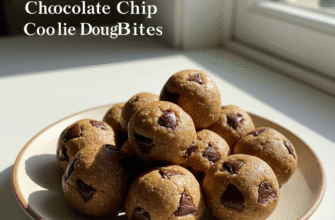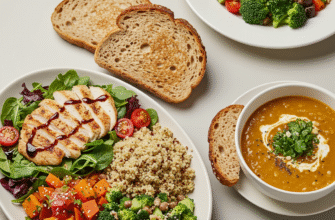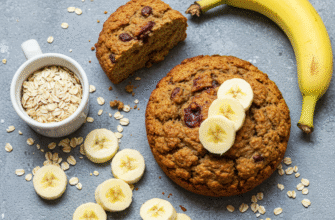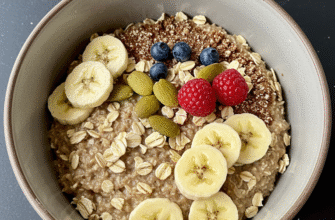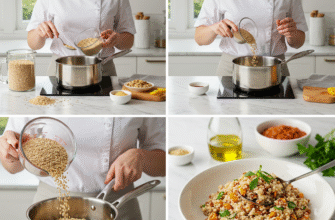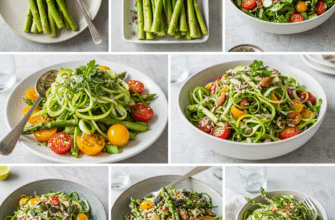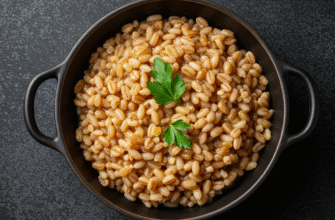Cornish hens possess a certain charm, don’t they? Smaller than a standard chicken, they offer an elegant single serving that feels special occasion-worthy, yet they’re surprisingly straightforward to prepare. Roasting is arguably the best way to cook them, yielding tender, juicy meat and hopefully, wonderfully crisp skin. The key to unlocking truly memorable flavor, however, lies beyond just salt and pepper. A well-crafted dry rub is the secret weapon for transforming these petite birds into flavor powerhouses.
Why a dry rub specifically? While marinades have their place, rubs work directly on the surface and just under the skin, creating an intensely flavored crust as the hen roasts. This direct contact helps achieve that coveted crispy skin, something a wet marinade can sometimes hinder. Rubs are essentially concentrated blends of salt, herbs, spices, and aromatics, designed to complement and enhance the delicate taste of the Cornish hen without overpowering it. Plus, they are incredibly easy to mix up yourself, allowing for endless customization based on your pantry staples and personal preferences.
Building your own signature rub is part of the fun. Start with the basics: salt (kosher or sea salt work well for texture) and black pepper (freshly ground is always best). Then, consider your flavor direction. Paprika is a fantastic foundation, offering color and mild sweetness (use sweet, hot, or smoked varieties). Aromatic powders like garlic powder and onion powder provide a savory depth that penetrates the meat beautifully. From there, the world of herbs and spices awaits. Dried herbs like thyme, rosemary, sage, oregano, or marjoram add earthy, fragrant notes. Spices such as cumin, coriander, cayenne pepper, or mustard powder can introduce warmth, complexity, or a gentle kick of heat.
Classic Herb Rub for Timeless Appeal
Sometimes, you just want that comforting, traditional roasted poultry flavor. This rub delivers exactly that – a savory, herbaceous blend that feels familiar and universally loved. It’s versatile enough to please almost any palate and pairs well with classic sides like roasted potatoes and green beans.
Key Ingredients Typically Include:
- Kosher Salt
- Freshly Ground Black Pepper
- Garlic Powder
- Onion Powder
- Dried Thyme
- Dried Rosemary (crush it slightly to release more flavor)
- Sweet Paprika
- Optional: A pinch of dried sage or marjoram
The beauty of this rub lies in its balance. The garlic and onion provide the savory backbone, while thyme and rosemary offer fragrant, slightly woodsy notes. Paprika adds a touch of color and subtle sweetness. It’s straightforward but deeply satisfying, enhancing the natural flavor of the Cornish hen without masking it. Don’t be afraid to adjust the herb ratios based on what you prefer; more rosemary gives a piney edge, while extra thyme lends a softer, more earthy character.
Smoky Paprika & Garlic Rub for Deeper Flavor
If you’re craving something with a bit more character and a beautiful, deep reddish-brown hue on your roasted hens, a rub centered around smoked paprika is an excellent choice. This spice brings a wonderful campfire-like aroma and taste that instantly elevates the dish.
Key Ingredients Typically Include:
- Smoked Paprika (the star!)
- Garlic Powder
- Kosher Salt
- Black Pepper
- Onion Powder
- Optional: A pinch of cayenne pepper for heat
- Optional: A teaspoon of brown sugar for a touch of caramelization
- Optional: A little cumin or coriander for complexity
The dominant flavor here is the rich smokiness from the paprika, complemented beautifully by the pungent garlic. It creates a slightly bolder profile than the classic herb rub. If you add a touch of brown sugar, it helps with browning and adds a very subtle sweetness that plays well against the smoke and savory notes. This rub is fantastic if you’re serving the hens with heartier sides, maybe some roasted root vegetables or a creamy polenta. The visual appeal is also undeniable – the hens come out of the oven looking incredibly appetizing.
Lemon Herb Pepper Rub for Zesty Brightness
When you want a lighter, brighter flavor profile, perhaps for a spring or summer meal, incorporating citrus notes is the way to go. A lemon herb pepper rub brings a delightful zestiness that cuts through the richness of the roasted hen, making it feel fresh and lively.
Key Ingredients Typically Include:
- Lemon Pepper Seasoning (check salt content) OR Dried Lemon Zest + Coarsely Ground Black Pepper
- Garlic Powder
- Dried Parsley
- Dried Dill (optional, but adds a unique freshness)
- Kosher Salt (adjust if using pre-made lemon pepper)
- Onion Powder
This rub offers a distinct tang from the lemon element, balanced by the familiar savory notes of garlic and onion. Parsley adds a clean, green flavor, while dill can introduce a slightly grassy, anise-like hint that pairs surprisingly well with poultry. The key is achieving a good balance between the acidic brightness of the lemon and the pungent spice of the pepper. This rub is particularly nice when served alongside lighter sides like asparagus, a simple salad, or orzo pasta.
Mediterranean Inspired Rub for Aromatic Depth
Transport your taste buds to the sunny Mediterranean with a rub featuring classic herbs like oregano and basil. This blend offers an earthy, aromatic profile that’s both comforting and slightly exotic.
Key Ingredients Typically Include:
- Dried Oregano
- Dried Basil
- Garlic Powder
- Onion Powder
- Kosher Salt
- Black Pepper
- Optional: Dried Marjoram (similar to oregano but sweeter)
- Optional: A pinch of dried mint or sumac for tang
- Optional: A hint of fennel seed (ground) for subtle licorice notes
The combination of oregano and basil creates a warm, herbaceous foundation, strongly associated with Greek and Italian cooking. Garlic and onion provide the necessary savory base. Adding marjoram softens the blend slightly, while a touch of sumac can mimic the brightness of lemon without adding moisture. This rub pairs beautifully with roasted vegetables like zucchini, bell peppers, and eggplant, or sides like couscous or a Greek salad. It smells absolutely wonderful as the hens roast.
Tips for Applying Your Rub
Getting the rub onto the bird effectively is crucial for maximum flavor and crispy skin. First, always pat the Cornish hens thoroughly dry with paper towels. Moisture is the enemy of crispiness and can prevent the rub from adhering properly. Be sure to dry the cavity as well.
Next, be generous! Sprinkle the rub evenly all over the outside of the hen. Don’t forget the underside. Gently massage it into the skin. For even more flavor penetration, carefully lift the skin over the breast and thighs (try not to tear it) and sprinkle some of the rub directly onto the meat underneath. Finally, sprinkle a little rub inside the cavity too.
While you can roast the hens immediately, letting them sit with the rub on for at least 30 minutes at room temperature before roasting allows the salt to start drawing out a tiny bit of moisture, which then mixes with the rub and helps it stick better. For deeper flavor, you can rub the hens and refrigerate them, loosely covered, for a few hours or even overnight.
Roasting Perfection Hints
High heat helps achieve that crispy skin. A common starting point is roasting at 400°F to 425°F (200°C to 220°C). The exact time will depend on the size of your hens and the accuracy of your oven, but typically ranges from 45 minutes to an hour or slightly more. The most reliable way to check for doneness is with an instant-read thermometer.
Verified Information: Check for Doneness Safely. For perfectly cooked and safe-to-eat Cornish hens, use an instant-read thermometer inserted into the thickest part of the thigh, avoiding the bone. The internal temperature should register 165°F (74°C). Checking the temperature is the most accurate way to ensure the poultry is fully cooked.
Once cooked, it’s essential to let the Cornish hens rest for about 10-15 minutes before carving or serving. Tent them loosely with foil. This resting period allows the juices, which have migrated to the center during cooking, to redistribute throughout the meat, resulting in a much juicier and more tender bird. Skipping this step often leads to dry meat.
Experimenting with different spice and herb combinations is the best part of using dry rubs. Start with these ideas, but feel free to tweak them, add your favorite spices, or adjust the heat level. Whether you prefer classic comfort, smoky depth, zesty brightness, or Mediterranean warmth, the right rub can turn simple roasted Cornish hens into an incredibly flavorful and satisfying meal. Happy roasting!

